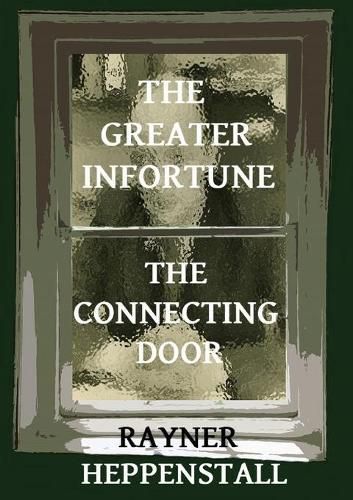Readings Newsletter
Become a Readings Member to make your shopping experience even easier.
Sign in or sign up for free!
You’re not far away from qualifying for FREE standard shipping within Australia
You’ve qualified for FREE standard shipping within Australia
The cart is loading…






This title is printed to order. This book may have been self-published. If so, we cannot guarantee the quality of the content. In the main most books will have gone through the editing process however some may not. We therefore suggest that you be aware of this before ordering this book. If in doubt check either the author or publisher’s details as we are unable to accept any returns unless they are faulty. Please contact us if you have any questions.
The Greater Infortune and The Connecting Door were both originally published as halves of a pair, and both released in the early 1960s as author Rayner Heppenstall turned fifty. The Greater Infortune is a revision of his Saturnine, first issued in 1943. They represent Heppenstall’s engagement with two literary genres, one quite archaic and quintessentially British; the other aggressively modern and French. For The Greater Infortune his guiding principle was that film had assumed the nineteenth-century novel’s exteriorised narrative function and that literary prose would do well to become more lyrical, more inward. The Connecting Door is Heppenstall’s attempt at a British answer to the nouveau roman or ‘anti-novel’, challenging readers to disentangle three simultaneous planes of time, to work out which characters exist in the present-day reality and which as the central figure’s memories, with incongruous and disorienting signifiers throwing the temporal sequence into constant doubt. These two works represent his beguiling prose and tussle with form at its peak.
You have only to read a novel that interweaves past and present clumsily to appreciate Mr. Heppenstall’s deftness. He has an eye so sharp it dazzles and sometimes hurts. – Isabel Quigley, The Guardian
Mr Heppenstall’s rapid, nervous storytelling makes most other novelists look like crawling removal vans. – V.S. Pritchett
$9.00 standard shipping within Australia
FREE standard shipping within Australia for orders over $100.00
Express & International shipping calculated at checkout
This title is printed to order. This book may have been self-published. If so, we cannot guarantee the quality of the content. In the main most books will have gone through the editing process however some may not. We therefore suggest that you be aware of this before ordering this book. If in doubt check either the author or publisher’s details as we are unable to accept any returns unless they are faulty. Please contact us if you have any questions.
The Greater Infortune and The Connecting Door were both originally published as halves of a pair, and both released in the early 1960s as author Rayner Heppenstall turned fifty. The Greater Infortune is a revision of his Saturnine, first issued in 1943. They represent Heppenstall’s engagement with two literary genres, one quite archaic and quintessentially British; the other aggressively modern and French. For The Greater Infortune his guiding principle was that film had assumed the nineteenth-century novel’s exteriorised narrative function and that literary prose would do well to become more lyrical, more inward. The Connecting Door is Heppenstall’s attempt at a British answer to the nouveau roman or ‘anti-novel’, challenging readers to disentangle three simultaneous planes of time, to work out which characters exist in the present-day reality and which as the central figure’s memories, with incongruous and disorienting signifiers throwing the temporal sequence into constant doubt. These two works represent his beguiling prose and tussle with form at its peak.
You have only to read a novel that interweaves past and present clumsily to appreciate Mr. Heppenstall’s deftness. He has an eye so sharp it dazzles and sometimes hurts. – Isabel Quigley, The Guardian
Mr Heppenstall’s rapid, nervous storytelling makes most other novelists look like crawling removal vans. – V.S. Pritchett